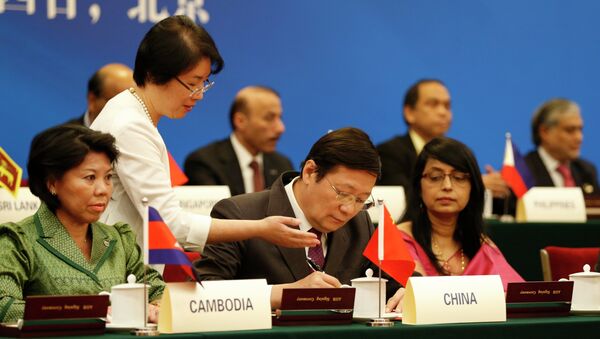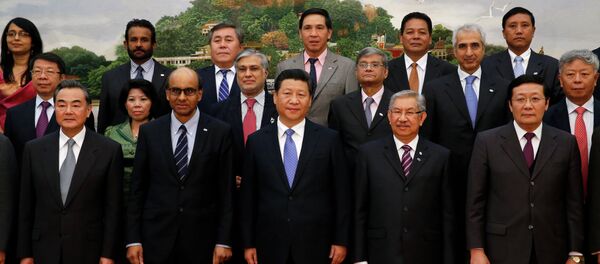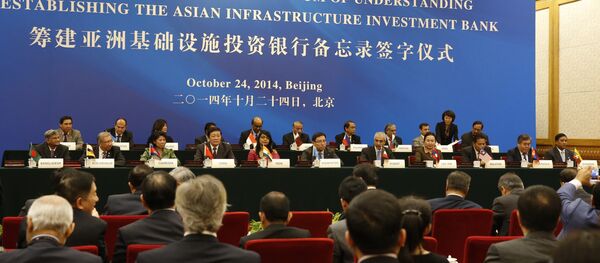Nonetheless, the quick expansion of the new international institution, devised by Beijing largely as a response to the US-halted IMF reform, was suddenly slowed by an explicit and adamant reluctance of Tokyo to participate in international financial schemes beyond the already existing architecture.
“Our stance remains unchanged that we must cautiously watch how (Beijing) guarantees fair governance at the AIIB," a source in the Japanese government told Reuters. "We have not ruled out the possibility of either joining or staying out."
In a recent set of events, such major US allies as Taipei, Australia, the Netherlands and South Korea all expressed their desire to join the newly-created formally multilateral institution. However, as the main proclaimed target of the AIIB is financing infrastructure projects in the Asia region, there have been allegations the institution might serve as a tool to Beijing’s ‘checkbook diplomacy’.
Select European nations, including the UK, Germany and Russia, have supported the inception of AIIB, seeing the institution as an important step to enhance China’s global weight.
However, China has not yet outlined how the newly-created institution is going to be ruled. The decision-making process has not yet been disclosed.
Creation of the AIIB is possibly challenging the Japan-dominated Asian Development Bank (ADB), which has been reducing poverty in Asia since 1966. However, the initial amount of funds, readily available at AIIB’s disposal, will only be limited to $50 billion — less than one-third of the ADB’s capital.



